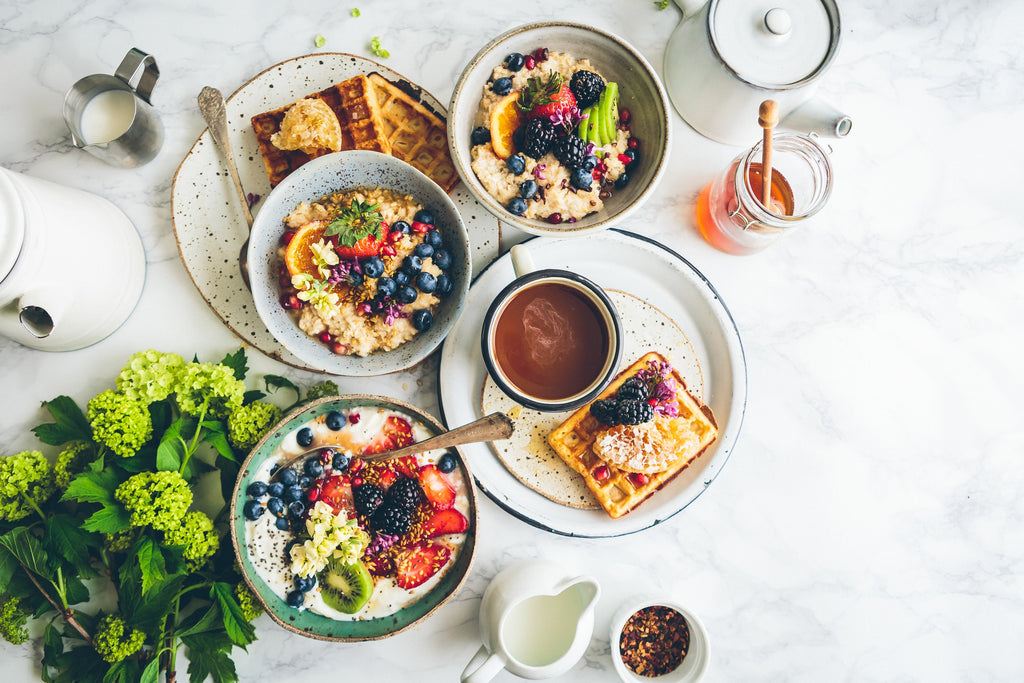
The best way to utilize the healing properties in food is to eat things that boost your immune system. Your body’s immune system is designed to attack micro-organisms, abnormal cells and chemicals. The essential soldiers in the immune system are the macrophages, T cells and B cells. Most often, the external threats are infections caused by invading bacteria, viruses and fungi, while abnormal or cancerous cells pose the major internal threats. In addition, this complex system oversees the repair of tissues that are injured by wounds or disease.
We get sick because often there is a lapse in time between the invading organism entering the body and the time it takes for the immune system to conquer it. How sick you become depends largely on how strong a defence your immune system can launch.
The right diet is critical to a strong immune system. The following are building blocks to help keep your defences strong. It’s best to get what is needed from your food. Taking supplements is usually not necessary unless you are taking therapeutic doses for a specific condition.
Proteins are central to the proper functioning of the immune system. The amino acids they produce are used to make antibodies and other immune compounds that attack foreign invaders and prevent infection.
Omega-3 and Omega-6 fatty acids help in immune function. Omega-3 fatty acids are abundant in fish and other seafood as well as in linseeds. They are especially beneficial in controlling inflammation and the harmful effects of rheumatoid arthritis and other auto-immune disorders. Omega-3s activate parts of the immune system that rein in attack cells to stop them when their job is done.
Vitamin E is a T cell enhancer. Vitamin E is found in nuts and seeds, margarine and avocados. It enhances T cell activity and assists in the production of antibodies.
Vitamin C to fortify. Vitamin C, found in many fruit and vegetables, assists in building and maintaining mucous membranes and collagen, as well as strengthening blood vessel walls. Vitamin C supplements may also help to reduce the duration of a cold. Red Capsicum and Kiwifruit are also excellent sources of Vitamin C.
Vitamin A is key. Found in liver (an acquired taste!!), fish, milk, cheese and eggs. Vitamin A reduces the severity and incidence of infectious illnesses by helping to keep mucous membranes healthy and intact and may also help increase antibody response and white blood cell proliferation. Beta carotene (found in all orange vegetables) can be converted into Vitamin A in the body.
Zinc is a trace mineral which helps to support immunity. The best food sources include seafood (especially oysters – if you can afford them!), meat, poultry and liver, as well as eggs, milk, beans, nuts and whole grains. However, too much Zinc in the body actually depresses the immune system.
Selenium is a trace mineral essential for a strong immune system. The best sources for Selenium are seafood, Brazil nuts, some meats and fish, as well as wheat bran, wheat germ, oats and brown rice.
Iron is an absolute must. Iron is required for the manufacture of B and T cells and ensures that cells get the oxygen they need to function properly and resist disease. Best sources are red meat, legumes, green vegetables, tofu, eggs, dried fruit and enriched cereals.
Anti-oxidants to protect against free radicals (no, this doesn’t refer to terrorists, although it would be nice if it was so simple to remove them!). The antioxidant properties of carotenoids, such as lycopene (found in tomatoes and tomato products) and beta carotene (found in orange, red and yellow plant foods and dark green vegetables) help protect immune cells from destructive free radicals, molecules that harm cells and damage DNA.
More Immune Boosters: Garlic and onions, blueberries, shiitake mushrooms, green tea and probiotics (such as those found in fermented milk products like yoghurt).
Moderate exercise and stress-reducing disciplines such as meditation, yoga and Tai chi can also help improve immune function.